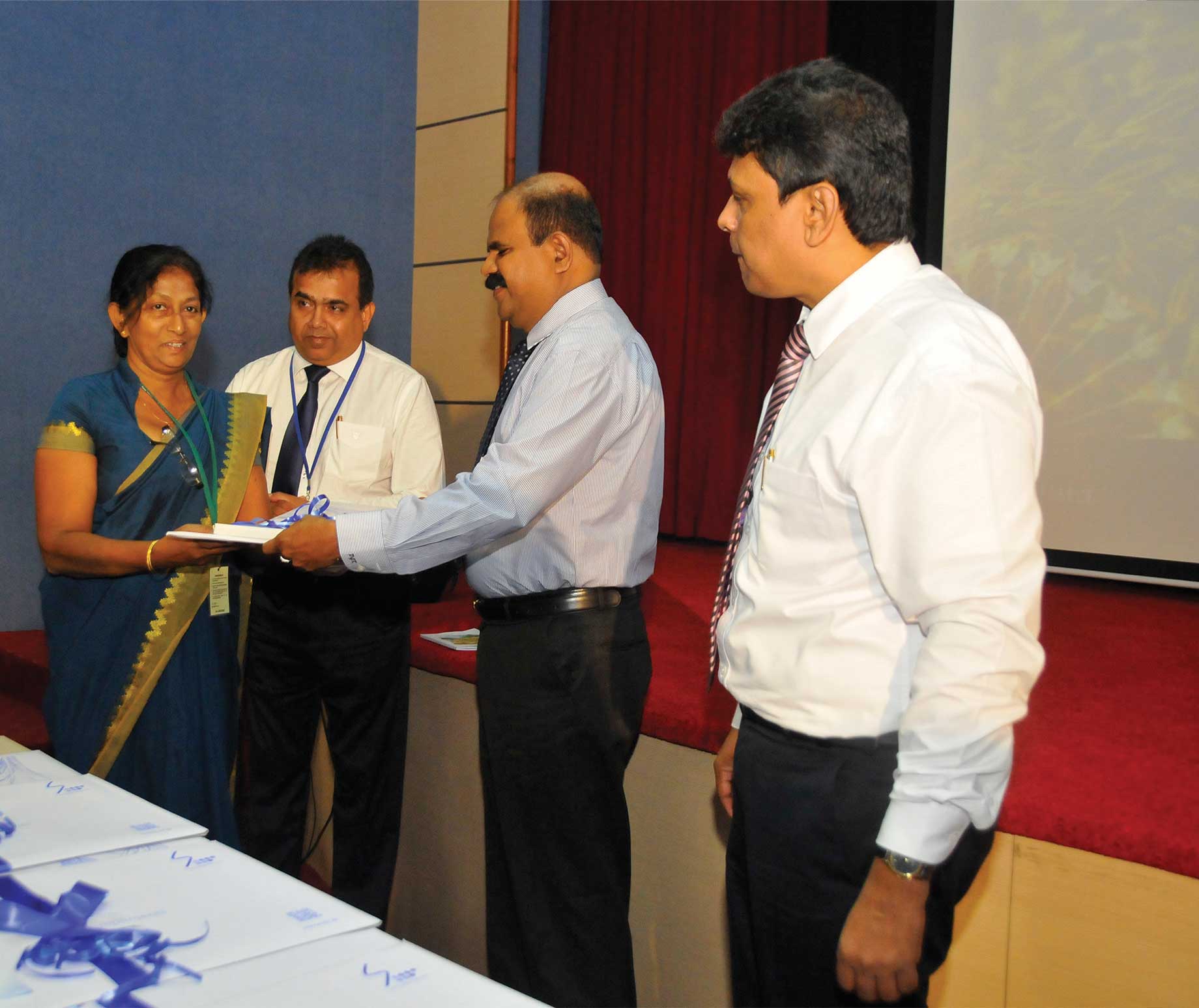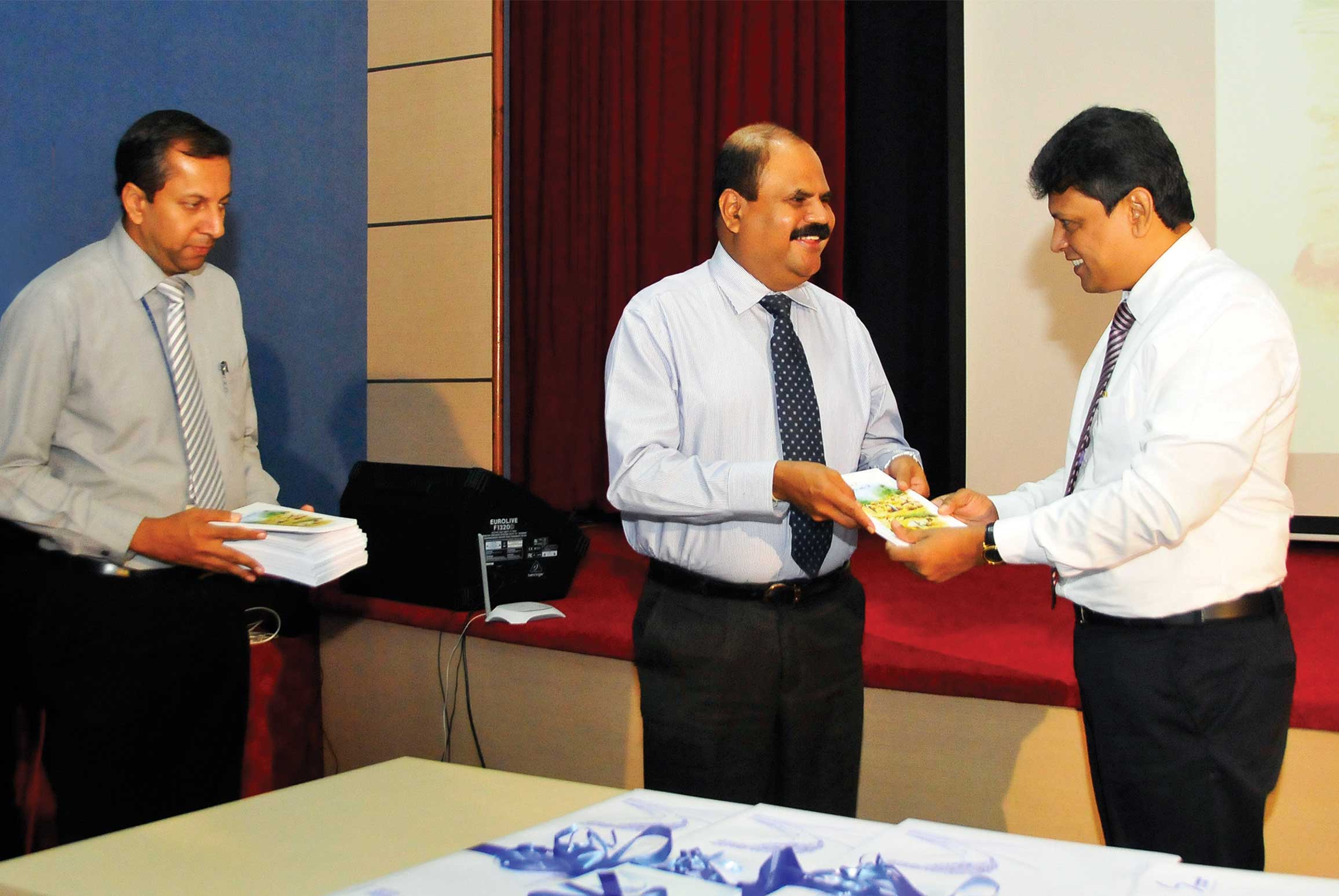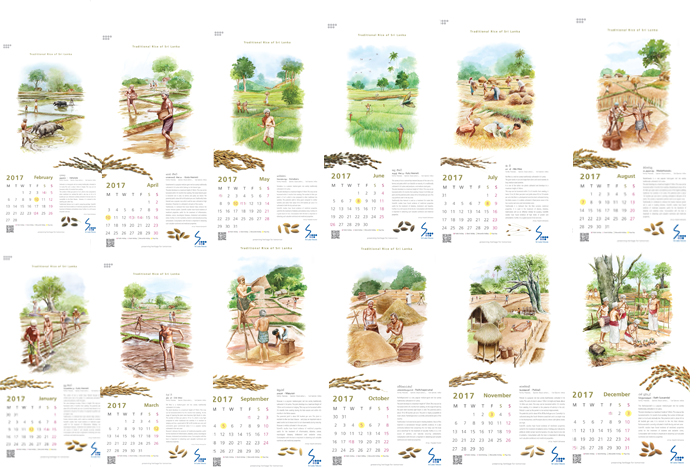Reply To:
Name - Reply Comment
 PSLT chairman presenting the SLT Calendar 2017 to Dr. Mrs Amitha Bentota – Director, Rice Research & Development Institute
PSLT chairman presenting the SLT Calendar 2017 to Dr. Mrs Amitha Bentota – Director, Rice Research & Development Institute
From Left: Dr. Mrs Amitha Bentota (Director, Rice Research & Development Institute), Mr. Rohana Ellawala ( GM/SLT), Mr. Kumarasinghe Sirisena ( Chairman/SLT) , Mr. Ajantha Seneviratne ( Group Chief marketing Officer/SLT)
Since 800 B.C Sri Lanka has been home to the cultivation of rice, evidence of this lies in the archeological discovery of large irrigation structures dating all the way back to 390 B.C. Throughout the period of the monarchy, Sri Lanka boasted the existence of over 2000 indigenous varieties of rice, thus earning the fitting title, ‘The Granary of the East’.
At the beginning of the 20th century documentation showed a total of 567 traditional varieties of rice. Through the natural process of evolution and the selection of farmers hundreds of years before, these varieties of rice had adapted to various environments. However, these types of rice were subject to confusion and mixture due to the negligence of foreign rulers. For this reason the Department of Agriculture adopted a purification process in the 1920’s. This led to the emerging of the current pure lines of traditional rice, each variety possessing specific characteristics and adaptabilities.
 Book “Ape Uruma Vee Rata Sarukaravee” presentation by Mr. Ajantha Seneviratne ( Group Chief marketing Officer/SLT) to Mr. Kumarasinghe Sirisena ( Chairman/SLT)
Book “Ape Uruma Vee Rata Sarukaravee” presentation by Mr. Ajantha Seneviratne ( Group Chief marketing Officer/SLT) to Mr. Kumarasinghe Sirisena ( Chairman/SLT)
From left : Mr. Vajira Hapuhinna ( Senior Assistant Manager/SLT) , to Mr. Kumarasinghe Sirisena ( Chairman/SLT), Mr. Ajantha Seneviratne ( Group Chief marketing Officer/SLT)
The nutritional and medicinal properties are immense and diverse. Research conducted in the recent years has proven that the varieties of Sri Lankan traditional rice possess extremely potent properties that aid in the cure of inflammations, diabetes, cancer, neurological diseases, cholesterol and oxidative stress. Thus the use of this traditional and indigenous resource in our country will effectively serve to improve the level of nutrition as well as the health status of the Sri Lankan people. Moreover, the diversity of the traditional types of Sri Lankan rice require conservation and utilization in order to ensure the further development and improvement of the cultivation of rice in our country as well as to provide natural solutions to the agricultural and environmental issues of our nation and the world.
As the leading pioneer in the country’s ICT industry and a great believer of social responsibility and environmental preservation, Sri Lanka Telecom is passionately committed to the task of “preserving heritage for tomorrow”. Thus, in order to ensure the long-term sustenance of the nation’s natural and cultural heritage, SLT has selected “Traditional Rice” as the theme of the calendar for the year 2017. And in doing so ensuring the rise of awareness among the public in order to ensure the preservation of this valuable part of Sri Lanka’s inheritance. The annual calendars produced by the company have always been under such themes as, “Medicinal Plants of Sri Lanka”, “Corals of Sri Lanka” and “Wild Fruits of Sri Lanka”, as proof that SLT has always made it a priority to create awareness among the masses about the importance of preserving valuable aspects of Sri Lanka’s history, culture and environment.
Along with the launch of the organization’s official calendar for 2017 SLT has also initiated a special CSR project under the theme, “Ape UrumaVee, Rata SaruKaravee” in order to promote awareness among the general publicand in doing so ensure the preservation of this precious part of Sri Lanka’s legacy.This project will see farmers educated and facilitatedby use of information technology in order to secure the development and evolution of their worthy profession.
